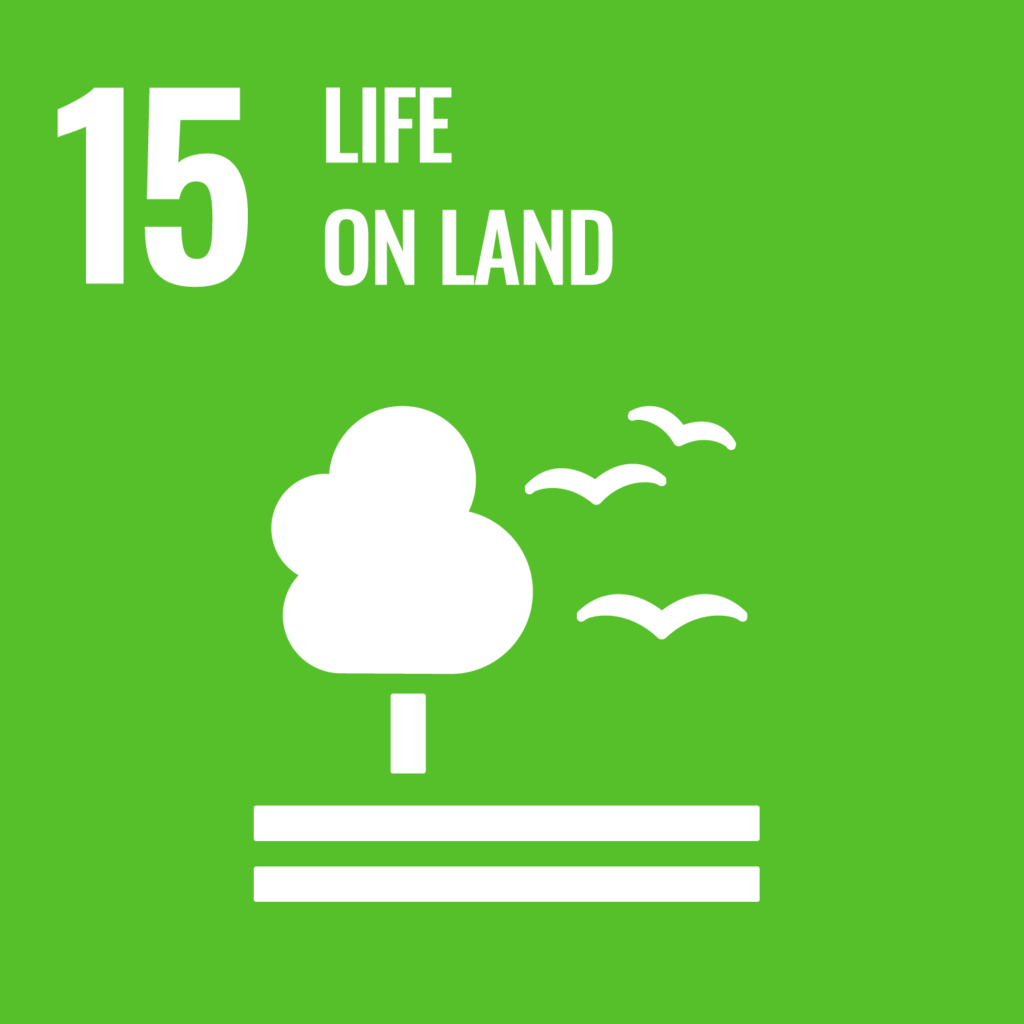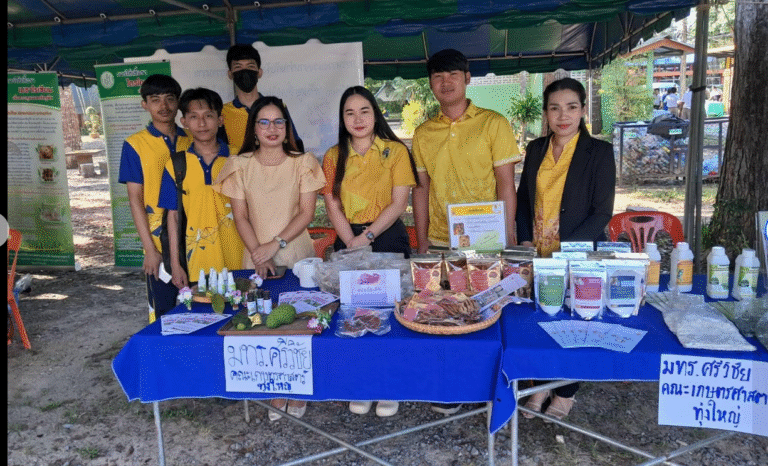Reporters: Asst.Prof.Dr. Prapot Maliwan
Assoc.Prof.Dr. Pornsil Seephueak
Asst.Prof.Dr. Nion Chirapongsatonkul
Asst.Prof.Dr. Worawitoo Meesook
Evidence Date: during 2024 Jan-Dec
Related Indicators: 15.3.1
Details:
The Faculty of Agriculture, Rajamangala University of Technology Srivijaya (RUTS) has established comprehensive outreach programs bridging academic research with community implementation, directly supporting land restoration and sustainable ecosystem management aligned with SDG Target 15.3. These initiatives demonstrate how collaborative partnerships between universities, farmers, and stakeholders create measurable environmental impact while promoting sustainable land use practices.
Community Engagement through PSB Technology Transfer
The flagship outreach program centers on the Learning Center: Communal Microbial Bank for Environment Friendly Aquaculture, led by Asst.Prof.Dr. Nion Chirapongsatonkul with NRCT support. This initiative addresses widespread problems of abandoned shrimp ponds and degraded aquaculture lands in Nakhon Si Thammarat and neighboring provinces, representing significant areas of unproductive and environmentally compromised land.
During 2024, the program conducted intensive training workshops for farmers in Nakhon Si Thammarat province at the RUTS campus. Through hands-on training sessions, local farmers learned systematic protocols for cultivating and applying photosynthetic bacteria (PSB) to restore water quality in abandoned ponds. The training curriculum covered microbial propagation techniques, water quality management, optimal application rates, and troubleshooting methods, ensuring farmers gained practical skills for independent implementation.
Participating farmers received PSB starter cultures and learned to multiply them at their own farms, creating a sustainable technology transfer model. The communal microbial bank approach eliminates dependency on external suppliers, empowering farmers to become local knowledge hubs who share expertise with neighboring communities. This peer-to-peer knowledge transfer multiplies program impact, creating ripple effects throughout farming networks in the region.
Farmers who completed the training have successfully rehabilitated previously unusable aquaculture lands, converting degraded sites back into productive ecosystems. They report improved water quality parameters, reduced disease incidence, and successful shrimp production from previously abandoned ponds. These tangible results validate the practical applicability of biotechnology research and demonstrate viable pathways for restoring coastal ecosystems while preventing further land degradation.
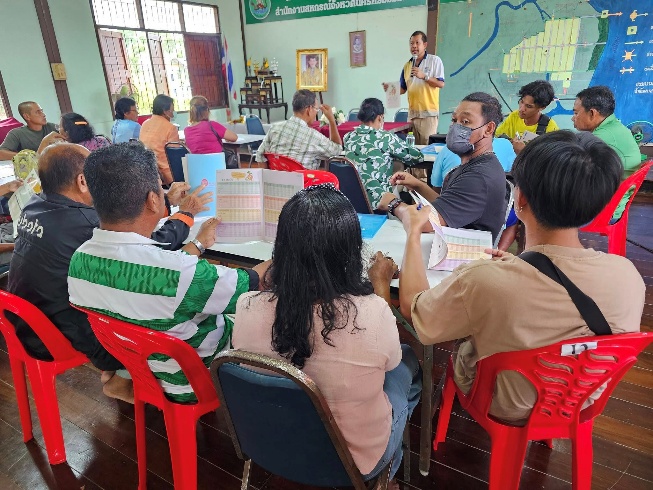
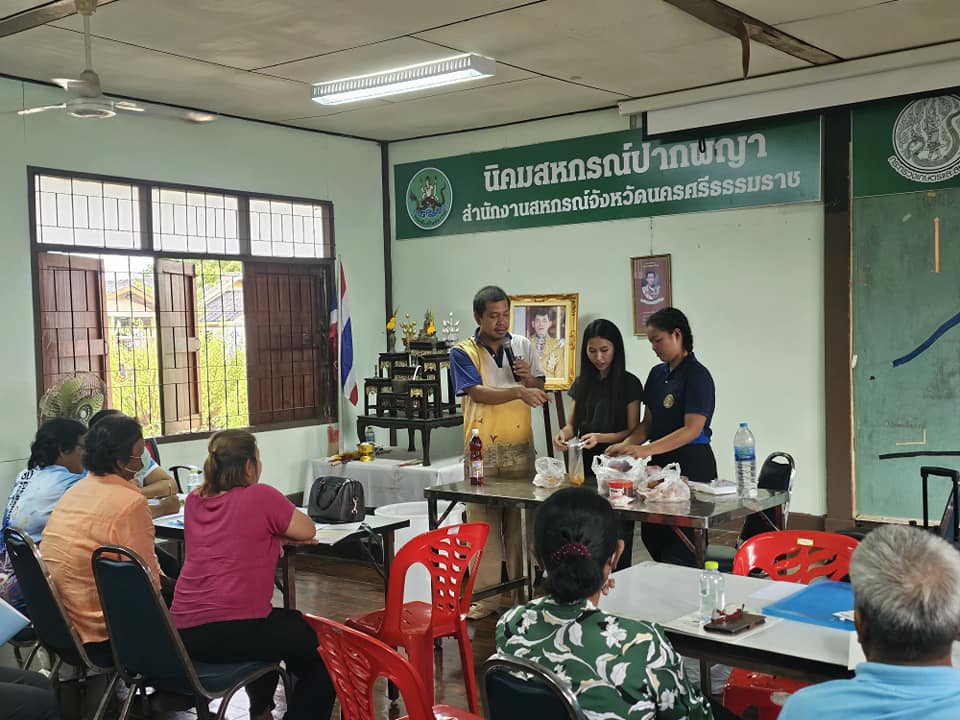
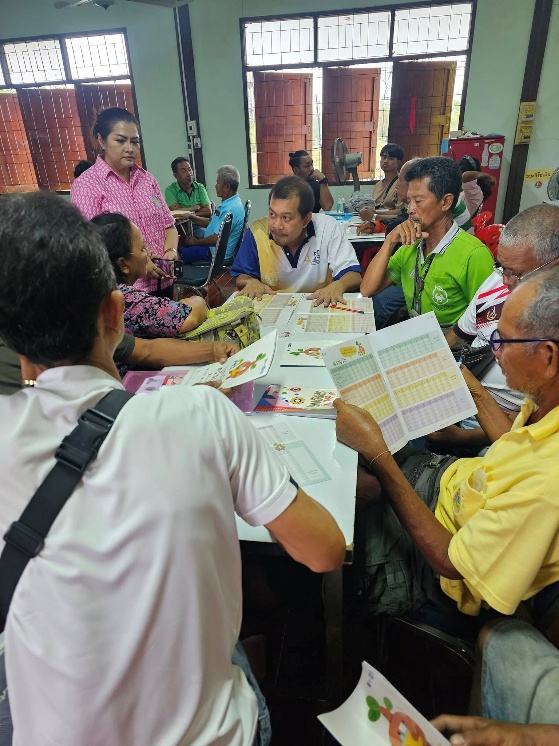
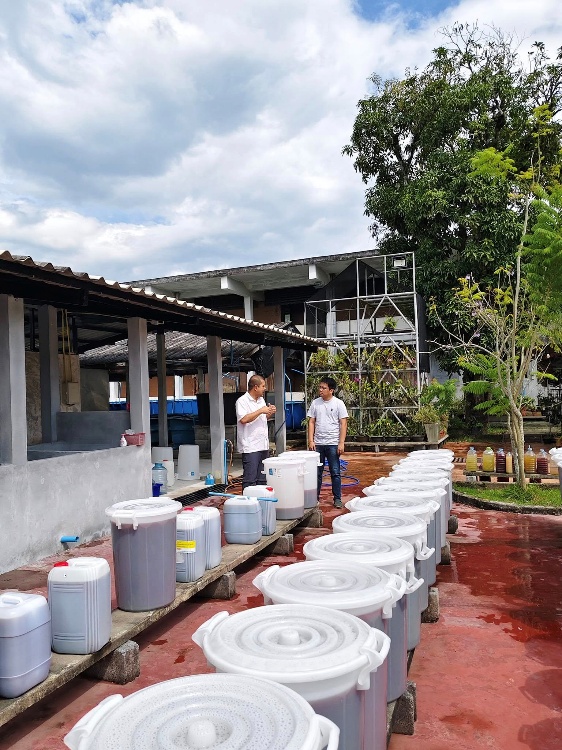
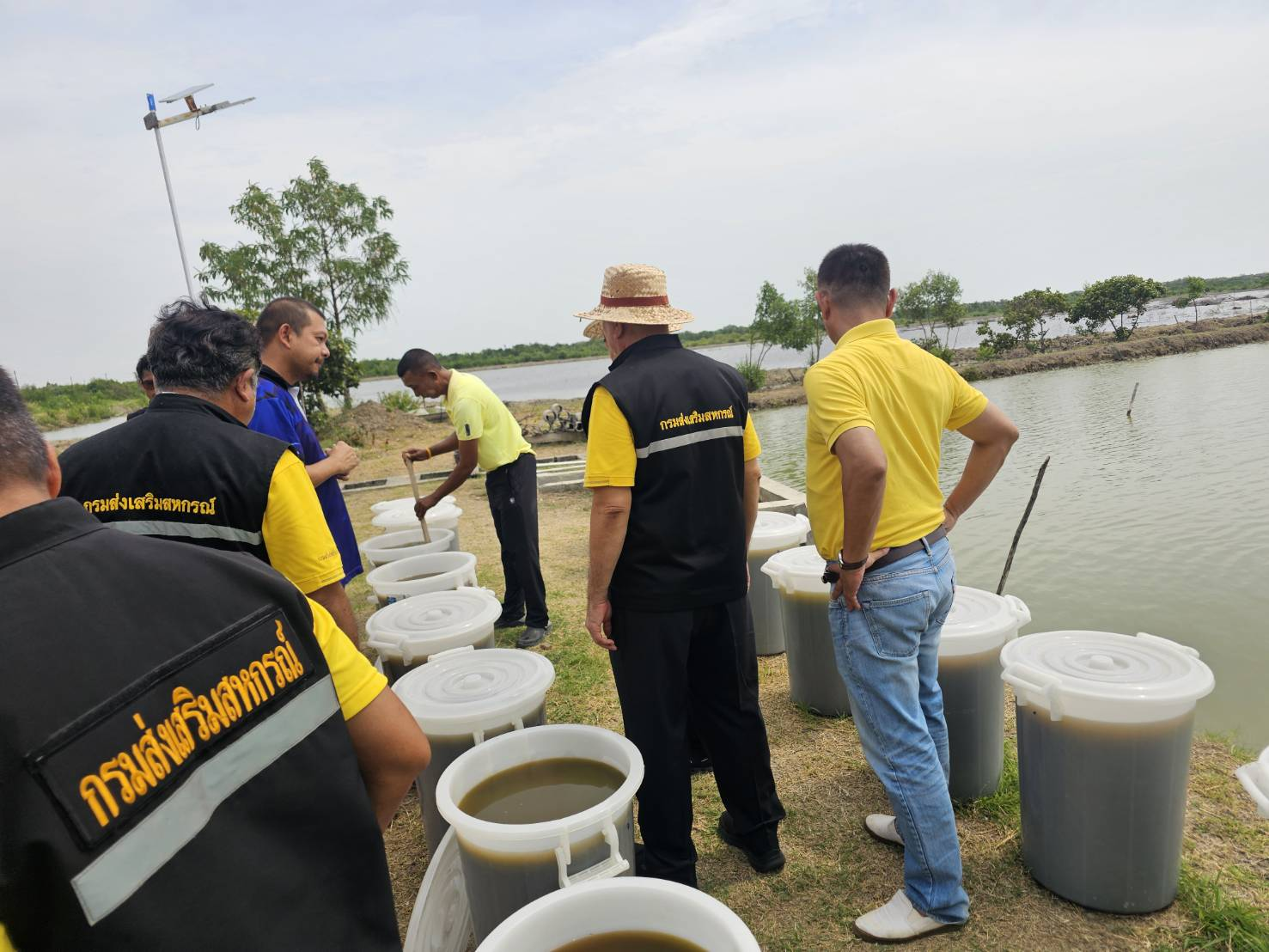
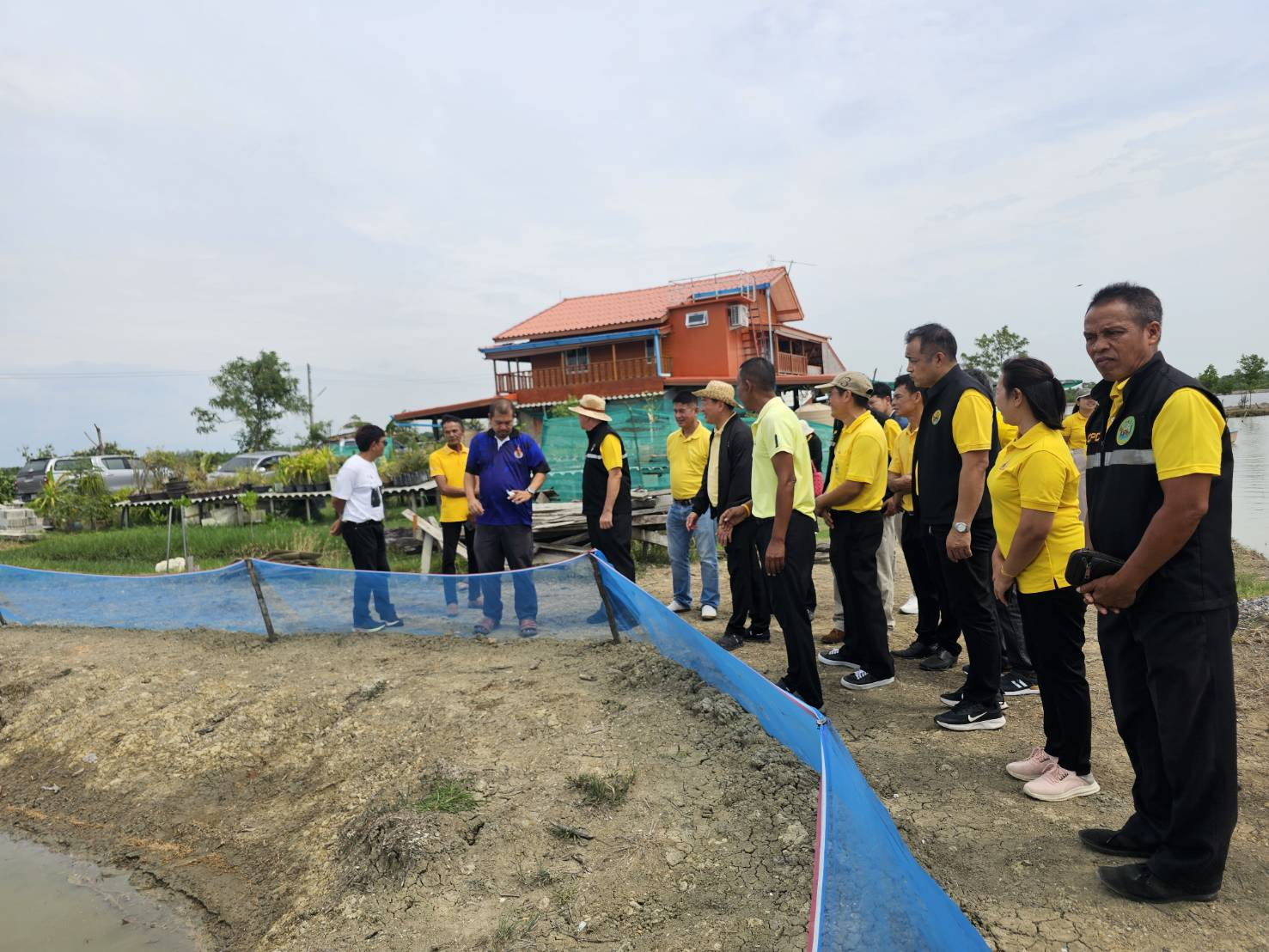
Agricultural Waste Valorization Training
Complementing aquaculture restoration efforts, RUTS implemented outreach activities focused on agricultural waste transformation through biotechnology-based fermentation. Training workshops taught farmers to convert cocoa husks and other agricultural by-products into nutritious fermented animal feed, addressing multiple sustainability challenges simultaneously.
These practical training sessions demonstrate fermentation techniques adapted to local conditions and available resources, making the technology accessible to farmers with varying technical expertise. Farmers learn to produce cost-effective feed alternatives during periods when fresh forage is unavailable, while reducing agricultural waste accumulation and decreasing pressure to clear additional land for feed crop cultivation. This circular economy approach directly supports sustainable land management and resource efficiency.
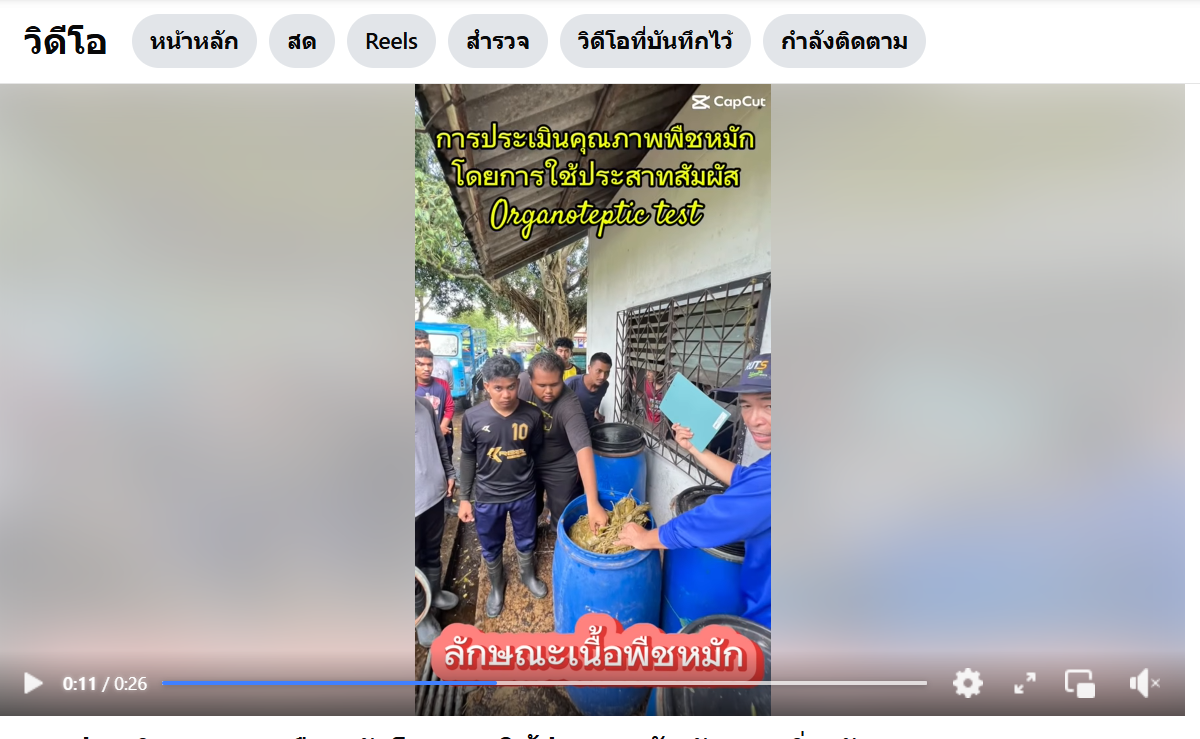
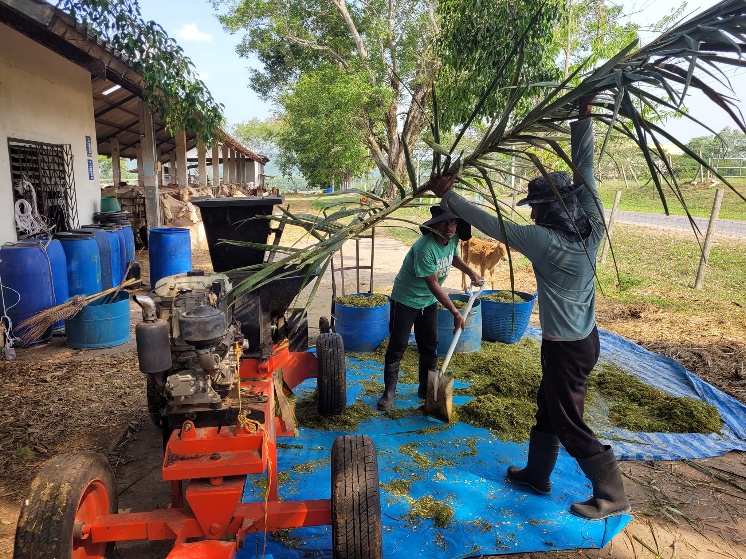
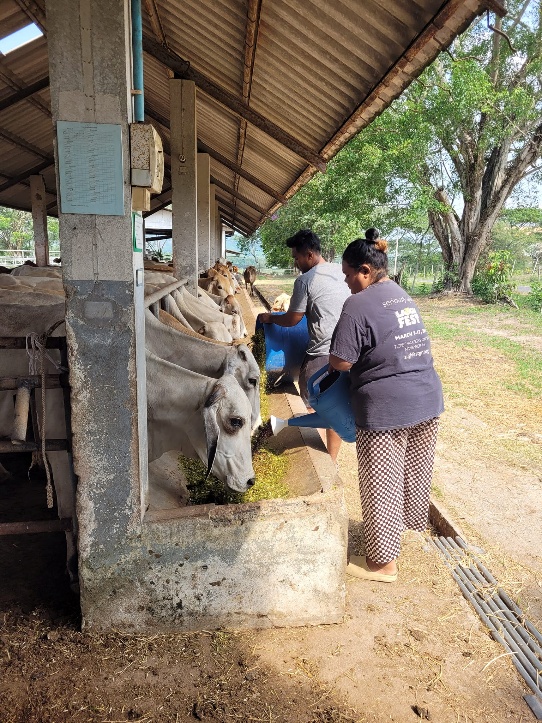

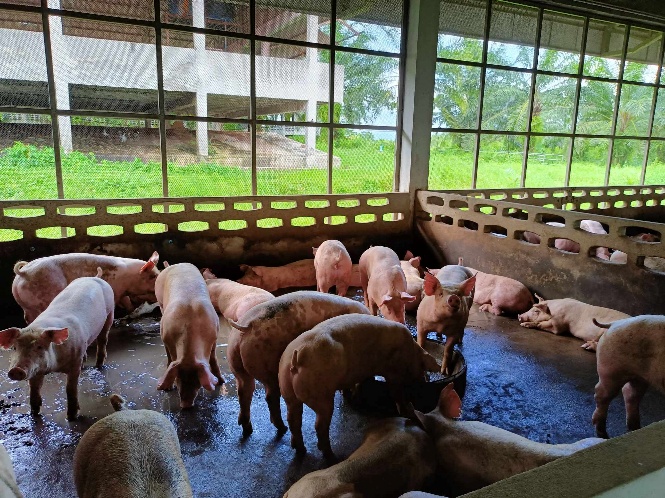
Multi-Stakeholder Partnerships
Program success relies on strong collaborative partnerships bringing together diverse stakeholders. NRCT provides research funding and institutional legitimacy, facilitating technology dissemination. Local agricultural cooperatives and farmer groups serve as crucial intermediaries, identifying participants and organizing training sessions. Industry partners contribute by providing agricultural by-products and demonstration sites, while government agencies support dissemination through agricultural extension networks.
This multi-stakeholder approach ensures research outcomes reach intended beneficiaries and create measurable impact on land restoration. The collaborative model demonstrates how academic institutions can effectively engage communities in addressing environmental challenges through participatory, practical solutions.
Measurable Community Impact
The outreach programs demonstrate tangible results in land restoration and sustainable land use. Participating farmers have successfully restored multiple hectares of abandoned aquaculture land through PSB application, while those adopting fermented feed technology report reduced waste accumulation and improved livestock nutrition. These outcomes directly support SDG 15.3.1 by promoting sustainable use and restoration of terrestrial and coastal ecosystems.
Beyond immediate environmental benefits, programs build community capacity for long-term sustainable land management. Trained farmers become local resource persons, sharing expertise within their networks and contributing to broader adoption of sustainable practices. This community-driven approach ensures land restoration efforts extend beyond individual farms to create landscape-level environmental benefits.
The proven model of combining biotechnology research with participatory community engagement provides a replicable framework for addressing land degradation challenges across diverse contexts, reinforcing RUTS’s commitment to sustainable development through meaningful partnerships that empower communities to restore and protect their local ecosystems.
https://www.facebook.com/share/p/1FShzAVBgj
https://www.facebook.com/groups/1388821681378037/posts/3738569793069869
https://www.facebook.com/groups/1388821681378037/?multi_permalinks=3769977696595745&ref=share
https://www.facebook.com/watch/?v=845222480915296&rdid=Wvdu06wFPoGDvnys
https://www.facebook.com/groups/1388821681378037/permalink/3563384530588397/?rdid=MQhSA5XaYhukbV6V#
https://www.facebook.com/groups/1388821681378037/permalink/3669438249983024/?rdid=9Kn05BWxuXZAV2aH#

